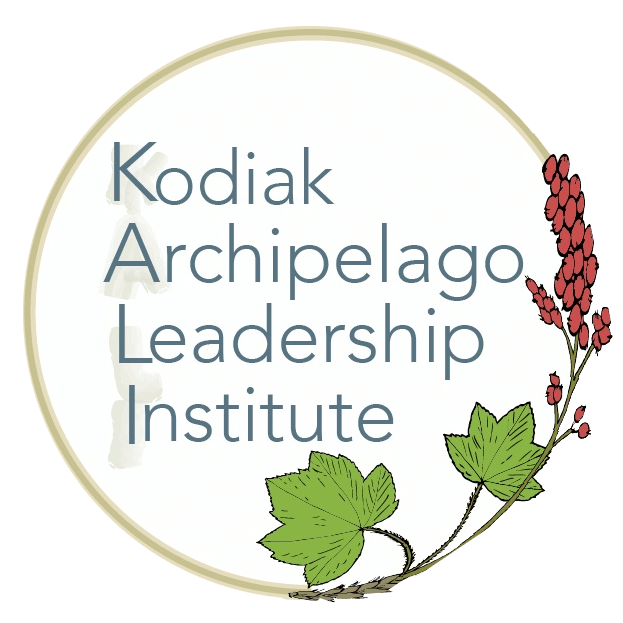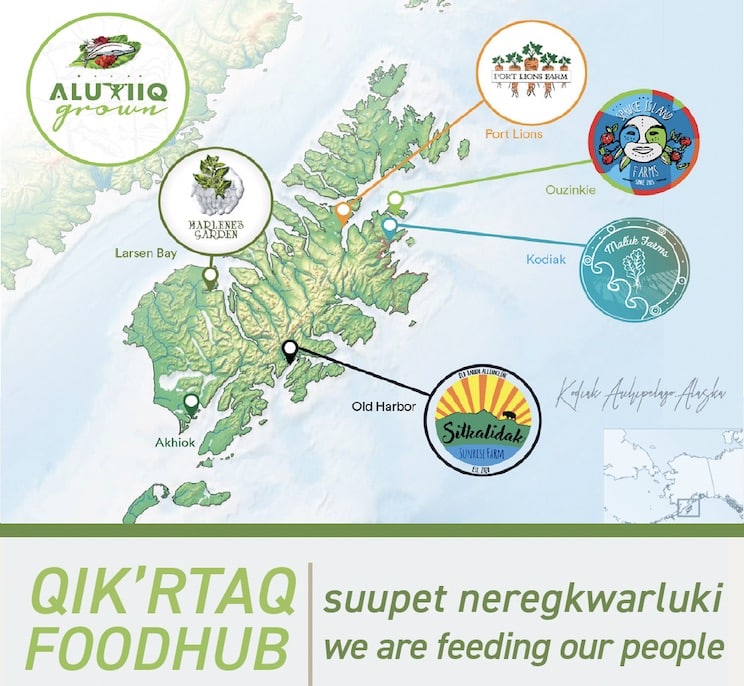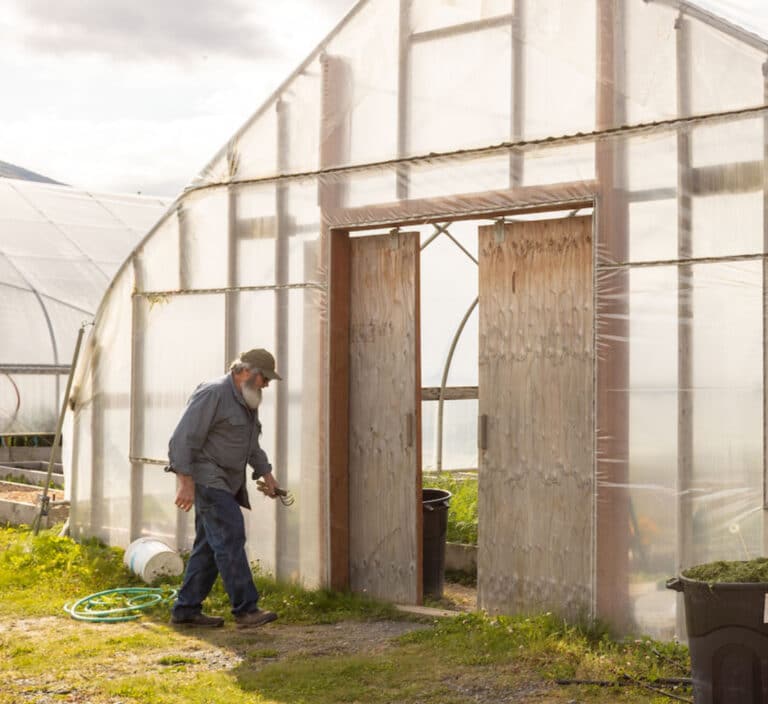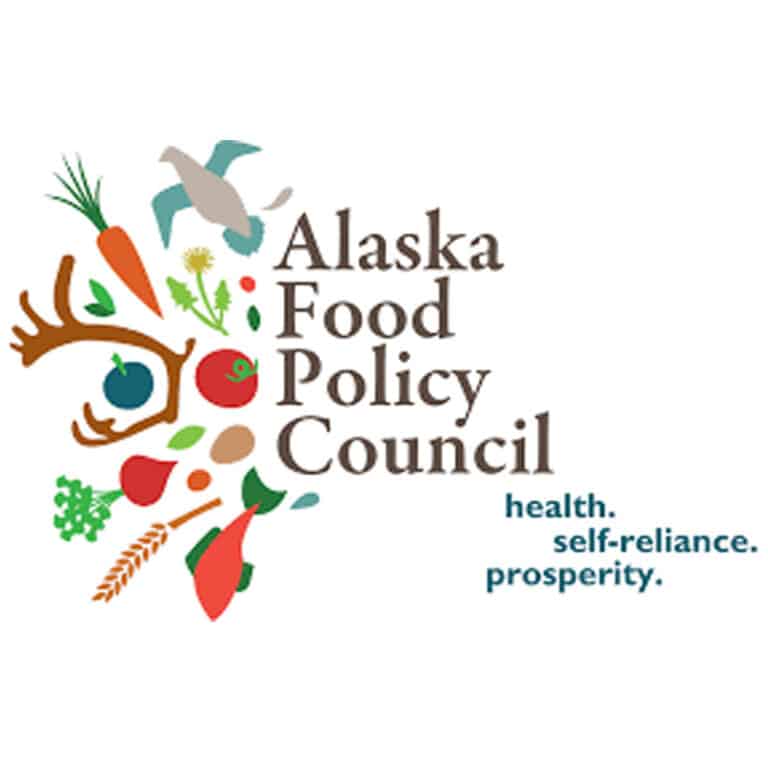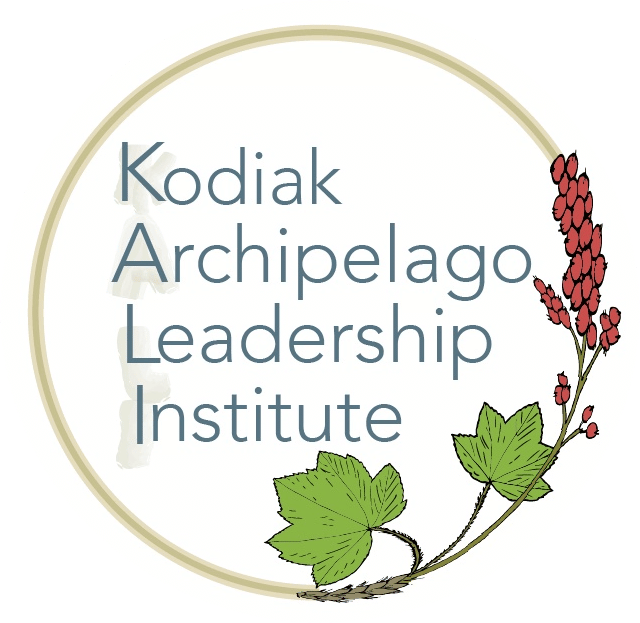Spruce Island Kelp Farm Successfully Outplants for First Harvest!
The Ouzinkie community’s Spruce Island Kelp Farm became the first indigenous-led community kelp farm to successfully outplant kelp in the Kodiak Archipelago as of early December 2024. The farm is located on the southeastern shoreline of Spruce Island and is managed by Duke Delgado, the hydroponics farm manager of Spruce Island Farms. This year’s outplanting utilizes a special permit reserved for research work issued through the Alaska Department of Natural Resources while Ouzinkie works to finalize their 25-acre commercial lease at the same location.

The kelp grown will be monitored as part of an Other Species Research Project funded through the Southeast Municipal Conference’s 49-million-dollar Alaska Mariculture Cluster project (AMC) awarded through the US Economic Development Administration (EDA) to support and encourage the development of a mariculture industry in Alaska. Lexa Meyer developed the research design working with the Spruce Island Kelp Farm and the Kodiak Archipelago Leadership Institute (KALI). Lexa serves as the primary investigator with administrative support provided by KALI. Funds support the research team, necessary supplies to build out the farm array (that will remain in Spruce Island Farms ownership), farming and harvesting support and contract wages for Duke.
The kelps outplanted in early December included split kelp, dragon kelp, and three ribbed kelp; all species that have not been widely grown in Alaska and elsewhere and hold great promise for commercial production. Kelp grown through this project will be harvested in the early summer of 2025 and utilized in another EDA funded project to determine the useful compounds in these novel kelps that may be included in food and cosmetic products. If study results are successful these other kelp species may provide niche opportunities for our region’s rural communities. These mariculture projects are just two of five projects funded through EDA in the region that include studies on drying kelp, wet ambient stabilization of kelp, and funding for a feasibility study to possibly utilize a land parcel at Gibson Cove in Kodiak for a processing facility for mariculture products. KALI is administering two of these projects and is closely tracking results to identify possible pilot projects in our region’s villages.
The outplanting was assisted by Alf Pryor of Alaska Ocean Farms who has shared his knowledge of kelp farming with farmers from Alaska to Maine. Alf has been farming adjacent to Kodiak Island since 2017 and runs two kelp leases on the Spruce Island Farm’s lease. The kelp seed used on the farm was cultivated from wild kelp stock in the Alaska Ocean Farms Nursery in Kodiak by Lexa. Lexa and Alf have been working with KALI since 2019 to create and hold mariculture training classes for Archipelago residents on topics such as farm construction, kelp harvesting, and kelp seed production. Duke was a participant in these trainings and is now the first indigenous community kelp farm leader in the Archipelago.

Lexa also works for KALI in her role as the region’s mariculture liaison s part of the broader SEC AMC liaison program. This program works to ensure equitable access for opportunities funded through the SEC AMC and is coordinated through the Alaska Mariculture Alliance. In this role Lexa provided extensive technical support to guide the research permit application through the preparation and review process until final approval was received.
Recent interest from kelp buyers from California and British Columbia show promise for development of robust markets for kelp from the Archipelago and will be purchasing the bulk of the kelp produced there in 2025. Kelp production in Alaska had slumped in the last few years due to lack of market interest but is seeing a major upturn in Kodiak this year. The future of the Kodiak mariculture industry seems bright and indigenous communities and community members are taking a center stage in this emergent industry with five total rural community lease plots Archipelago wide of which Ouzinkie is the first.
